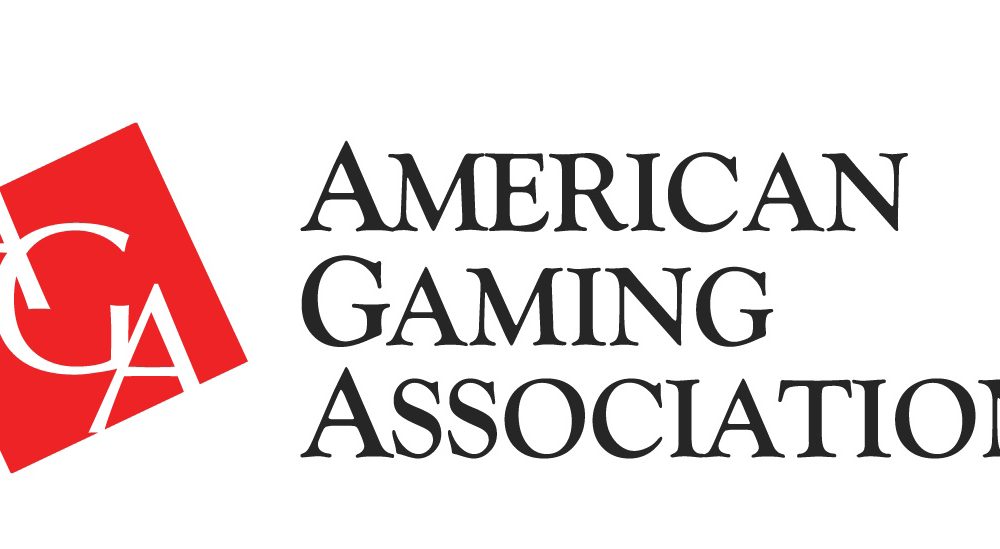Compliance Updates
The Finnish Supreme Administrative Court rules that skill-based fantasy sports games belong to Veikkaus monopoly
Article written by Antti Koivula, consulting legal advisor at Legal Gaming
On May 24, 2022 the Finnish Supreme Administrative Court delivered its judgment on IS-Liigapörssi-case (KHO:2022:60), in which the Supreme Administrative Court analysed whether skill-based fantasy sports games are within the scope of the Finnish Lotteries Act (1047/2001) (“Lotteries Act”) and thus belong to the state-owned gambling operator Veikkaus Oy’s (“Veikkaus”) monopoly.
Finland has a statutory gambling monopoly in place, under which Veikkaus has exclusive rights to operate and market gambling. According to the Lotteries Act, all games which include a participation fee, prizes of monetary value and the result is based on chance, are within Veikkaus monopoly. The main question in the case was if it is enough the game to be even remotely based on chance to be within the scope of the Lotteries Act and thus belong to Veikkaus monopoly, and if that was the case, whether the element of chance was present in the skill-based fantasy sports games in question.
IS-Liigapörssi-case concerned popular fantasy sports games in Finland, in which participants form virtual ice hockey teams from real ice hockey players and points were awarded based on the ice hockey players performance on real ice hockey matches. The fantasy sports games included entry fees and prizes and they had been run since 1995 by a Finnish media giant Sanoma Media Finland Oy (“Sanoma”). It was an undeniable fact that skilled and analytical participants who invested a considerable amount of time to the fantasy sports games outperformed participants who picked the players randomly.
The background of the case is lengthy, as the national authorities had tried to shut down the fantasy sports games run by Sanoma for more than a decade. In 2008 the Ministry of the Interior made a request for investigation for the police, which carried out a preliminary investigation. However, in 2010 the National Prosecution Authority (“NPA”) made a non-prosecution decision stating that it was left unresolved whether the Fantasy Sports games in question are within the scope of the Lotteries Act.
In 2017 the gambling enforcement authority, the National Police Board (“NPB”) started administrative proceedings against Sanoma regarding the fantasy sports games and two years later in 2019 the process had reached the point in which the NPB imposed a prohibition order and a conditional fine of EUR 300,000 for Sanoma on the basis that Sanoma was not allowed to run the fantasy sports games as they qualified as gambling. Sanoma appealed to the Helsinki Administrative Court arguing that the fantasy sports games in question were skill-games with which chance had no effect on the results and thus outside the scope of the Lotteries Act, but in 2021 the Helsinki Administrative Court ruled in favour of the NPB. Sanoma appealed to the Supreme Administrative Court.
The Supreme Administrative Court acknowledged that participants knowledge and skills were meaningful in the context of success, but reminded that at the same time random factors outside the participant’s control had a significant importance too. Thus, the chance of winning was at least partially based on luck. As the fantasy sports games also included entry fees and prize money, only Veikkaus was allowed to run them in Finland.
The Supreme Administrative Court’s decision hardly came as a surprise. The Lotteries Act’s definition of gambling is extremely broad, from which a good example is that even an ice fishing competition and an auction were previously deemed to fall within it. Nevertheless, the decision yet further strengthened the NPB’s authority and it remains to be seen what is the next competition or event after which they’ll go next.
Compliance Updates
PGA of America Joins AGA’s Have A Game Plan.® Bet Responsibly.™ Campaign

The PGA of America is partnering with the American Gaming Association’s (AGA) Have A Game Plan.® Bet Responsibly. public service campaign to promote responsible sports wagering.
public service campaign to promote responsible sports wagering.
Announced ahead of the 2024 PGA Championship—May 16-19 at Valhalla Golf Club in Louisville, KY—the partnership will feature co-branded responsible gaming content, educational materials and strategic activations across PGA of America’s digital and social platforms.
“As the PGA of America welcomes ESPN BET as the Official Sports Betting Sponsor of the 106th PGA Championship, it is core to our values to ensure golf fans have the right tools in their bag to bet responsibly,” said PGA of America Chief Commercial Officer Jeff Price. “Activating AGA’s Have A Game Plan campaign during this year’s PGA Championship and beyond will be an integral part of our strategy as interest in golf wagering grows.”
Launched in 2019, Have A Game Plan brings legal gaming operators, sports teams, leagues, media companies and other organizations together around a common consumer education message, focusing on the core principles of responsible wagering:
- Set a budget and stick to it.
- Keep it social—sports betting is a form of entertainment for adults.
- Know the odds.
- Play with legal, regulated operators.
“We look forward to our partnership with the PGA of America amplifying Have A Game Plan’s principles with golf enthusiasts and bettors across the country,” said AGA Senior Vice President of Strategic Communications Joe Maloney. “Together, we’re driving the message home: set a budget, stick to it, and wager responsibly.”
Other league Have A Game Plan partners include the MLB, NASCAR, NBA, PGA TOUR, NHL and WNBA. For more information about the Have A Game Plan initiative and resources on responsible gambling, visit HaveAGamePlan.org.
Compliance Updates
A New Analysis by EGBA Reveals Notable Shift Towards Multi-licensing for Online Gambling Across Europe
A new analysis by EGBA concludes that 27 out of 31 European countries employ some form of multi-licensing for online gambling, with an overwhelming majority implementing a full multi-licensing approach.
In recent years, Europe has experienced a remarkable transformation in online gambling regulation. Just fifteen years ago, the landscape was vastly different. Most European countries lacked dedicated regulations for online gambling or operated under exclusive rights models where only state-owned entities had a monopoly to offer online gambling services.
But fast forward to today and the situation has evolved significantly. A new analysis by the European Gaming and Betting Association (EGBA) concludes that the multi-licensing model has become the predominant regulatory approach in Europe. Under this model, multiple companies are permitted to offer online gambling services within a country, provided they comply with strict regulatory obligations.
Key findings of the analysis:
- 27 out of 31 European countries have adopted some form of multi-licensing, indicating a robust trend towards open, competitive markets.
- Four countries currently do not have any form of multi-licensing: Finland, Iceland, and Norway maintain exclusive rights models, granting state-owned entities a monopoly over all online gambling services, while Luxembourg lacks dedicated regulations for online gambling.
- Of the 27 countries with multi-licensing, 23 countries have a full multi-licensing model for all regulated online gambling products in those countries.
- Four countries have a mixed model with partial multi-licensing: Slovenia and Switzerland each have a monopoly for online sports betting, while Austria and Poland each have a monopoly for online casino gaming and poker, with multi-licensing for all other online gambling products.
- Cyprus (casino gaming and poker) and France (casino gaming) each impose product-specific prohibitions but both have multi-licensing for all other regulated online gambling products.
- Finland is currently undergoing legislative reforms, and is expected to establish a multi-licensing framework for online gambling in 2026.
Maarten Haijer, Secretary General of EGBA, said: “The momentum towards full multi-licensing for online gambling in Europe is undeniable. While a few exceptions still exist, governments are concluding that public policy objectives, particularly related to consumer protection and tax generation, are more effectively met through well-regulated online competition. Finland’s current transition towards multi-licensing signals the impending end of the last online gambling monopoly in the EU, marking a significant regulatory milestone.
“Similar deliberations regarding the future of the online monopoly are inevitable in Norway and Iceland. Furthermore, the handful of countries with either partial monopolies or product prohibitions should strive for greater consistency and effectiveness in their policies by phasing these out. With over 15 years of regulatory experience in Europe, it’s clear that full multi-licensing offers the best pathway to enhance consumer protection, increase tax revenues, and ensure stronger regulatory control. The time has come for the last remaining European countries to embrace this optimal form of online regulation.”
The post A New Analysis by EGBA Reveals Notable Shift Towards Multi-licensing for Online Gambling Across Europe appeared first on European Gaming Industry News.
Compliance Updates
Spinomenal is now a registered provider in Peru

Spinomenal, the leading iGaming content provider, has expanded its Latin American presence by registering as a service provider in Peru. The approval from Peru’s Ministry of Foreign Trade and Tourism (MINCETUR) allows Spinomenal to provide its casino titles to the country’s locally licensed operators.
With Peru’s recent introduction of new gaming regulations, the iGaming environment is set for an exciting transformation. Spinomenal is thrilled to be part of this dynamic evolution, offering our state-of-the-art gaming solutions to energise and enhance the gaming experience within Peru’s thriving iGaming community.
Peruvian players will now be able to enjoy Spinomenal’s popular portfolio of games and some of the gems available are Majestic King and Demi Gods V.
Spinomenal CO-CEO, Lior Shvartz commented: “Latin America continues to be a key region for us and we’re proud to now be able to offer our titles within the regulated Peruvian market. Games have been hand-picked for Peruvians based on localised knowledge of player preferences gained by our experience in the market prior to the new regulation.”
-

 gaming2 years ago
gaming2 years agoODIN by 4Players: Immersive, state-of-the-art in-game audio launches into the next generation of gaming
-
EEG iGaming Directory7 years ago
iSoftBet continues to grow with new release Forest Mania
-
News6 years ago
Softbroke collaborates with Asia Live Tech for the expansion of the service line in the igaming market
-
News5 years ago
Super Bowl LIII: NFL Fans Can Bet on the #1 Sportsbook Review Site Betting-Super-Bowl.com, Providing Free Unbiased and Trusted News, Picks and Predictions
-
iGaming Industry6 years ago
Rick Meitzler appointed to the Indian Gaming Magazine Advisory Board for 2018
-
News5 years ago
REVEALED: Top eSports players set to earn $3.2 million in 2019
-
iGaming Industry6 years ago
French Senator raises Loot Boxes to France’s Gambling Regulator
-
News6 years ago
Exclusive Interview with Miklos Handa (Founder of the email marketing solutions, “MailMike.net”), speaker at Vienna International Gaming Expo 2018












